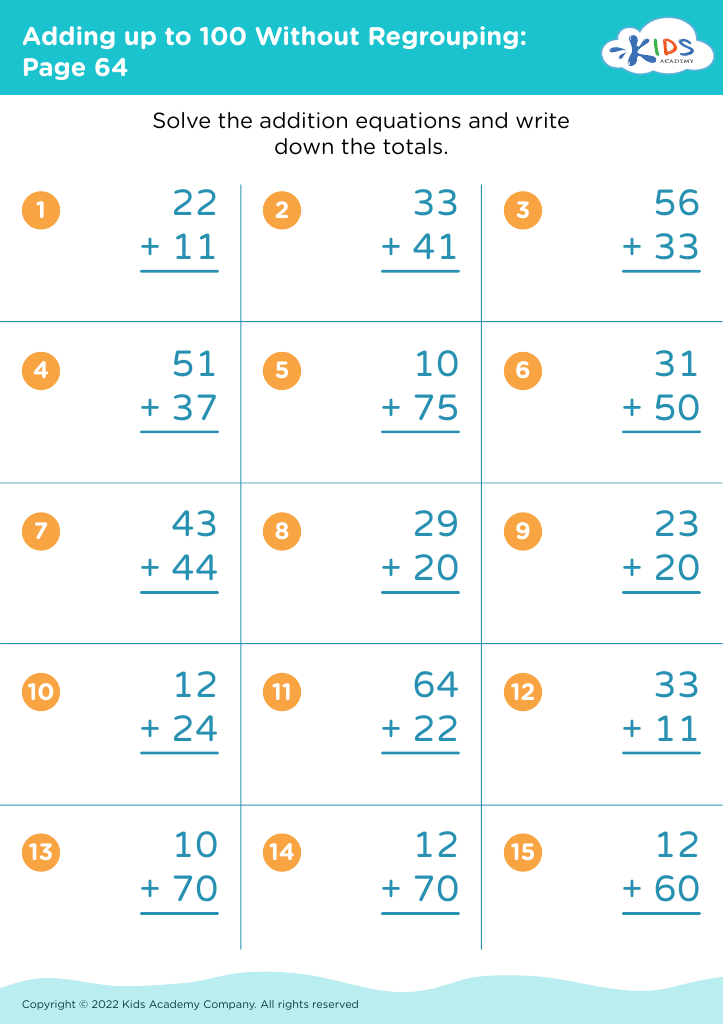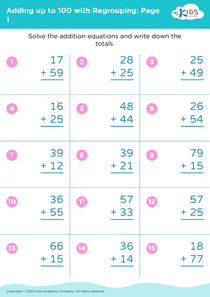Improve counting skills Adding up to 100 Without Regrouping Worksheets for Ages 5-8
3 filtered results
-
From - To
Enhance your child's counting abilities with our "Improve Counting Skills: Adding Up to 100 Without Regrouping Worksheets," designed specifically for ages 5-8. These engaging worksheets provide a fun and interactive way for young learners to practice addition, focusing on sums that do not require regrouping. Through various exercises, your child will boost their confidence in math while mastering essential skills. Perfect for homeschoolers or supplementing classroom learning, these worksheets align with early educational standards. Watch as your little one builds a strong mathematical foundation, paving the way for future success in math. Start your counting journey today!
Improving counting skills and adding up to 100 without regrouping is critical for children aged 5-8 as it lays a strong numerical foundation essential for their mathematical development. Mastering basic counting enhances their number sense and boosts confidence in handling numbers, serving as prerequisite skills for later concepts involving larger numbers and mathematical operations.
For parents and teachers, fostering these skills can enhance overall academic performance. Children with a solid grasp of counting can transition smoothly into more complex topics such as subtraction, multiplication, and division. It also supports cognitive development, encouraging problem-solving and analytical thinking.
Furthermore, counting skills are not isolated to math; they intertwine with various subjects, including science and reading, where patterns and sequences often play a vital role. Regular practice in counting nurtures perseverance, attention to detail, and self-discipline, which are crucial traits for lifelong learning.
Encouraging children to master counting and addition not only equips them with essential life skills, like budgeting and time management, but also instills a curiosity about numbers in their world. Thus, focusing on these foundational skills is beneficial not only for academic success but also for a child’s overall intellectual growth.














